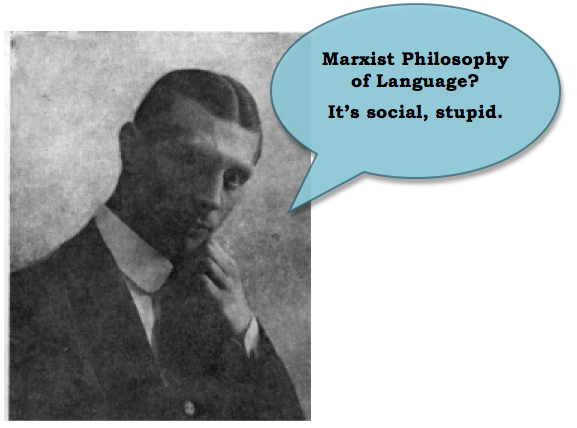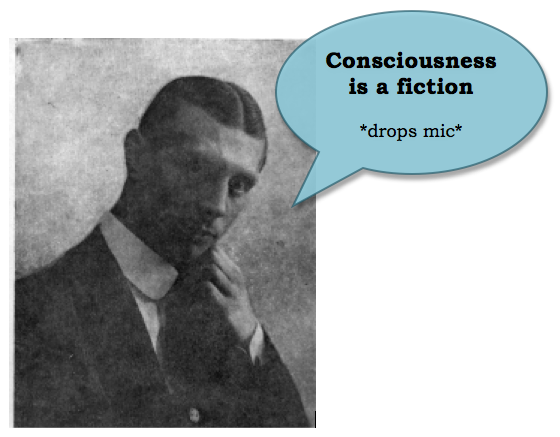
Volosinov spends a large amount of time presenting trends of thought that previous linguists have subscribed to, and successfully examines the limits of both subjective, individualistic philosophies and structuralist, objective philosophies. The former places the creativity of language within the individual psyche, the latter places the system of language outside the individual as an incontestable norm in which to be assimilated into (53). Spatially, language is neither wholly within nor outside the individual;”The organizing center of any other events, of any experience, is not within but outside – in the social milieu surrounding the individual being” (93). The individual, ceaselessly existing in a social environment, language is built not from an overarching structure, nor a stream of inner speech, but through the process of verbal interaction (94).
Within this social environment the individual first encounters ideology, and therefore first acquires any notions of consciousness; “Consciousness becomes consciousness only once it has been filled with ideological (semiotic) content, consequently, only in the process of social interaction” (11). In Volosinov’s “pro-social” philosophy of language, there is no inner speech apart from ideology. Signs are both the material of one’s inner speech and the material of social interaction (14). Consequently, experiences, both inner and outer, are always social; there are no experiences outside of embodiment in signs. Experiences, therefore, are not the organizing force of expression, rather expression organizes experience and “expression is what first gives experience its form and specificity of direction” (85).
Each person’s inner world comprises reasons, motives, and values formed within their social environment. The word performs as a two-sided act, determined equally by whose word it is and for whom it is meant; “a word is a bridge thrown between myself and another” (86). Every verbal expression is socially oriented in its entirety, from conversational anecdotes over the weather between strangers to the cry of a nursing infant toward its mother (87).
The so-called personality of any individual is in fact, a product of social interrelations, his consciousness socially structured just as much as any collective experience (90). Therefore, Volosinov daringly asserts, “Consciousness is a fiction” (90). The material of inner speech, the only essence of inner being individuals possess, is made up of the sign, a purely social material, and therefore any ideas of a private, inner life is a false notion.
Volosinov uses the frameworks of individualistic subjectivism and abstract objectivism to search through what linguists of the past have argues is the “true center of linguistic reality” (63). Through this he finds that:
“The actual reality of language-speech is not the abstract system of linguistic forms, not the isolated monologic utterance, and not the psychophysiological act of its implementation, but the social event of verbal interaction in an utterance or utterances. Thus, verbal interaction is the basic reality of language” (94).
